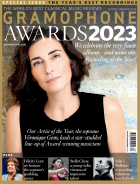Texte paru dans: / Appeared in: |
|
 |
Outil de traduction |
|
It all starts with the voices. Bates has assembled a heavyweight cast, including cameos from Nicky Spence (Sailor) and Tim Mead (Spirit), with mezzo Helen Charlston (a recent Dido for Les Arts Florissants) a luxurious First Witch. But the tone is set by Fleur Barron in the titlerole. The Singaporean-British mezzo leans into the role’s tragic scope; when she speaks of ‘torment’ it doesn’t just throb but shakes Purcell’s ground bass until it seems like the melodic circle can never close again. There’s no fear of colouring outside the lines, and her Dido – generously shaded and gestural – refuses to be confined, packing five acts of tragedy into the opera’s short scope.
Giulia Semenzato’s Belinda is balanced to match Barron, rich and brilliant rather than lithe, and often intricately ornamented (though diction does suffer a little), blending effectively with Hilary Cronin’s dark-toned Second Lady. Avery Amereau brings plenty of expressive inflection to the Sorceress, sitting just the right side of panto: idly, mischievously malignant rather than tipping into madness, stylishly supported by Charlston and Martha McLorinan as her Witches. Only Matthew Brook’s Aeneas feels out of place in this plausible psychodrama, bluff and avuncular rather than an ardent lover. But it’s the orchestral playing and colouring where this recording really comes into its own. Small touches – the breathy softness of the strings at the start of the Overture, gradually coming into brighter focus; the unexpected gleam of a harp; or an all-out groove for guitar, percussion and continuo leading into ‘Oft she visits’ – bring storytelling into sharp focus, constantly pulling the ear towards new details. Choral singing is tight and tidy, better suited to celebration than wicked scheming – the only overtly English aspect of this theatrical, big-boned performance that shows Bates and his ensemble at their best. |
|




